24 Jan Nostalgia Should Become a Criminal Offense
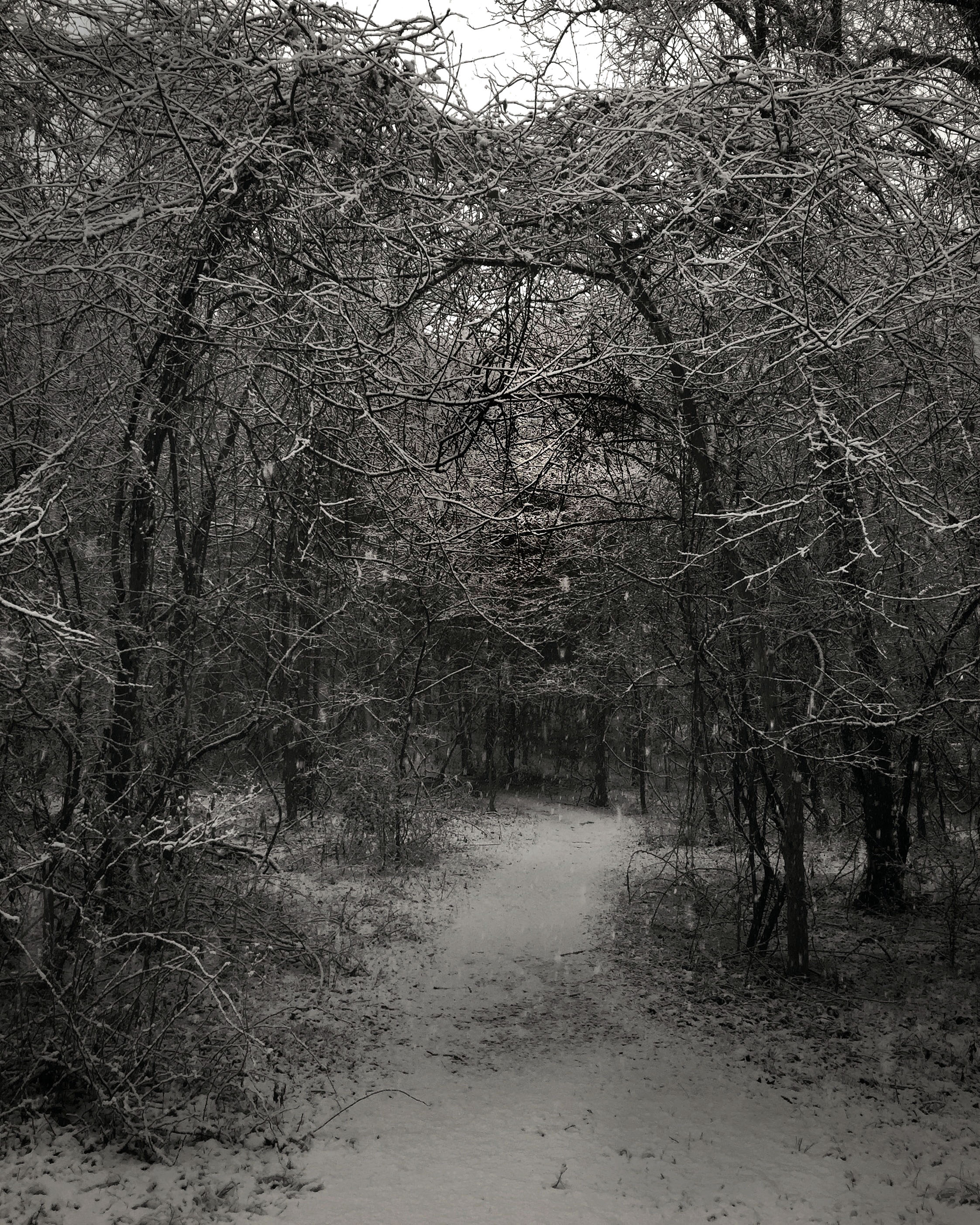
My mind often wanders in ways that surprise me. Often times when I’m in a half dream state, I’ll write whole articles in my mind, aware that if I shift my attention enough to commit these thoughts to paper, they’ll disappear. In the end, only shreds and shards move through my fingers, to the keys, to the glowing screen. It’s gotten to the point where I’ve almost given up on even trying, and instead just appreciate the time that I have with these fragile beasts.
This morning, as I began to walk in the meadow behind my house, my mind wandered to the apparent conflict between the spiritual idea of being truly present and the desire that we have to tell stories, or to make art; to leave a record. Then I thought about how the spiritual guru Ram Dass often uses stories from his past to illuminate spiritual matters. Where do our impulses come from, and what do they mean? In some sense Ram Dass uses stories in order to guide us towards letting go of the stories that trap us in the past.

I stopped thinking for a moment and instead began to break branches off of a tree that had leaned into the pathway due to the heavy snows of last week. For a few days, I had gingerly moved around it, imagining that it might rise again once the weight of the snow had lifted off. However, like many small trees it remained hunched like an old man, waiting for someone to help him cross Bleeker St. This morning, after being whipped by a few of the thin branches, I decided to strip off some of them so they wouldn’t slap people trying to scuttle past. While finishing up that process, I realized how focusing on that task had paused my ruminations. For a few minutes, I had stopped telling myself stories, or worrying about the tasks that I needed to accomplish today.
Split_Screen, “Lost in Spain” from rumur on Vimeo.
As I started walking again, I thought about the upcoming double feature screening of our first two films. While I’m excited that they are getting a chance to be seen, I was also aware of how hard it is to motivate people to go out to an event. I recalled going to see double features at Theater 80 on St. Marks Place in the early 90’s, and how excited we were to check the calendar to see what gems were playing. There is such bounty in our living rooms now that few people want to go out into the fields. Knowing this, I have been working to figure out how to get people out.
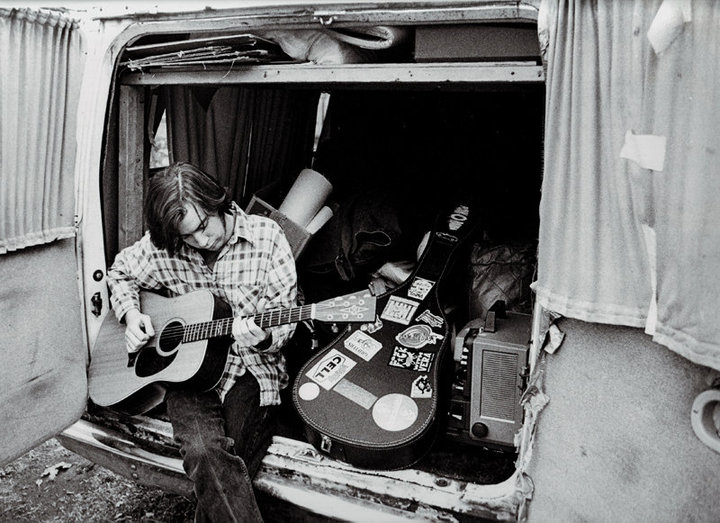
Yesterday I sent a bunch of press materials to the theater, including this article about the NY premiere of “Radiation” that also included a discussion of the release of my first photo book and a show of many of those images at CBGB gallery (and an opening party at CB’s that included my band Sleepyhead I believe). That was in March of 1999. We had begun to play together in the fall of 1989, and by the following winter we were recording our last record as a band. My partners in that band continued on, but during that recording I left the band.
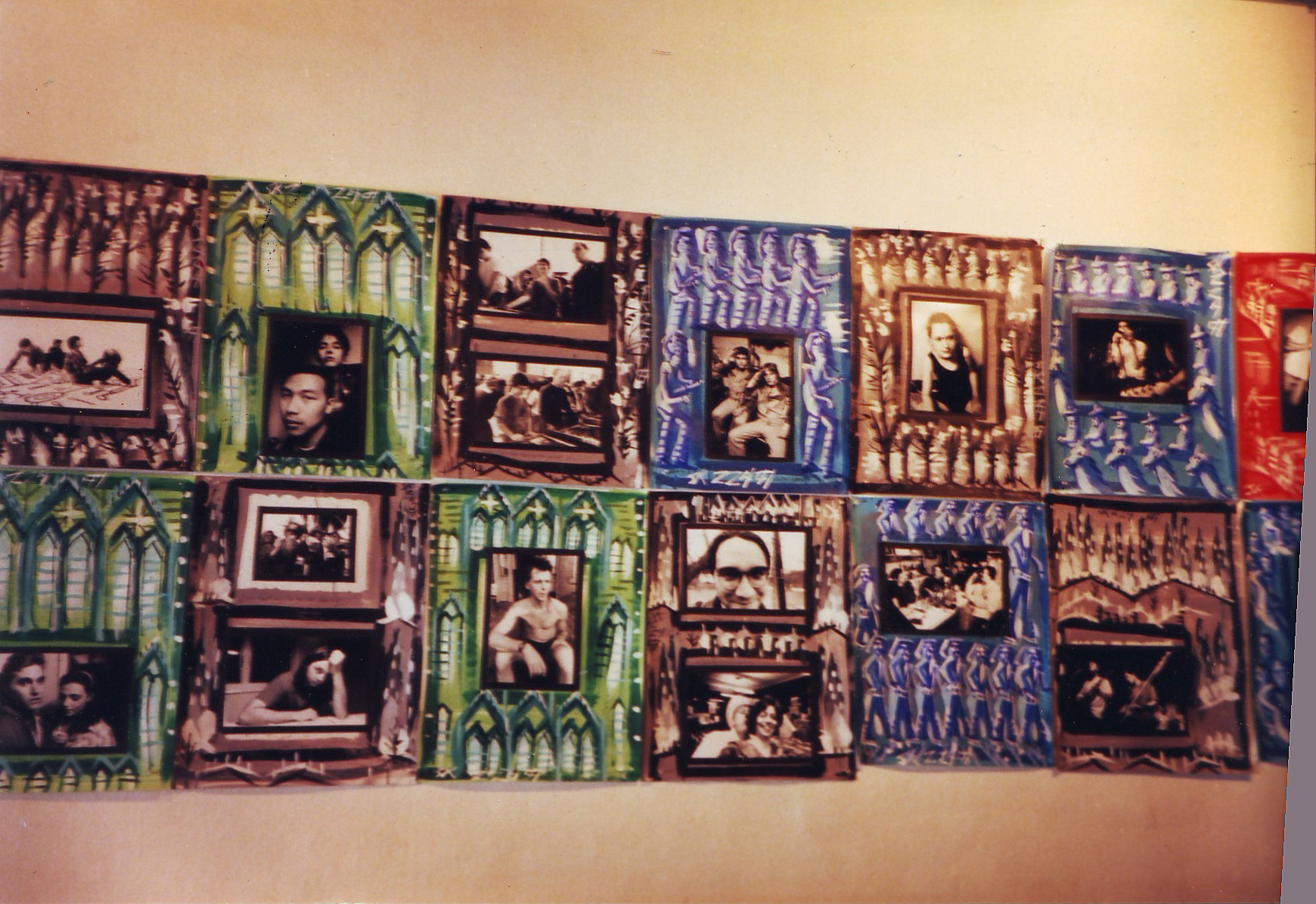
As I got to the bottom of the hill, I thought about that time and the first lines from one of the songs we recorded for that album, “The Brighter Shore”. That song, “Miss America” had likely popped into my head because I was thinking about stories, but also because they relate to the first thing I pondered this morning- the connection between being present and storytelling.
“Nostalgia should become a criminal offense.
We’re always pining for our lost innocence.
Dreaming back a feeling that we never really had at all”
miss america – sleepyhead from rumur on Vimeo.
It then hit me that it has been almost 20 years since we recorded that album. The singer and the drummer married shortly after we broke up. We all now have kids that are getting ready to drive, and that reality seemed so unreal to me. Chris O’Rourke, the singer and guitar player in Sleepyhead, is a wildly underrated wordsmith. He used to labor over the lyrics until the very last moment that we recorded. For him each song was a short story and every word mattered. When we started the band in the basement of our dorm, I thought a lot about lyrics and wrote down reams of ideas. However, I was not a singer by any stretch of the imagination. My ideas were fractured pieces. Early on, Chris might use an idea of mine to spark his process, but lyrically, Sleepyhead was Chris’ project.
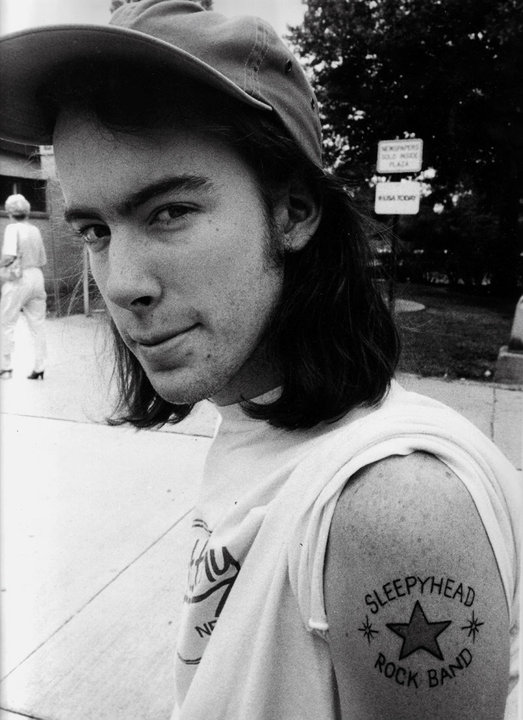
From the moment that we met in the lobby of our dorm, Chris and I were drawn to each other by a shared obsession with music. However, when we began to play together, we struggled to harness our creativity without interference from our egos. From the very inception of our project, creative differences were a driver of much of our process. As is often the case, some of those differences pushed us into realms of greater creativity. They also often drove us into times of stagnation- and into conflict. By the time we were recording “The Brighter Shore,” our creative conflict was diminished, but our boats were drifting apart.
While I was in the band, I appreciated Chris’s lyrics. Looking backward, I am often awed by them. In college, Chris focused on literature, and it wasn’t surprising to find him diving deeply into things like Joyce’s “Ulysses” or Bulgakov’s “The Master and Margarita”; tomes that challenged not only language but also thought. He labored over they lyrics so that they might be complexly constructed, yet feel effortless. To me, this process reached its peak with “Miss America”. The second full verse follows the pattern of the first. Yet the song is woven together with many different stories and themes. It’s worthy of 10-page dissection and I hope some grad student writes a thesis on it.
“America is nothing but a child in distress
Screwed up because Mother always put him in a dress
He got to Californ I A to find he could go no further West”
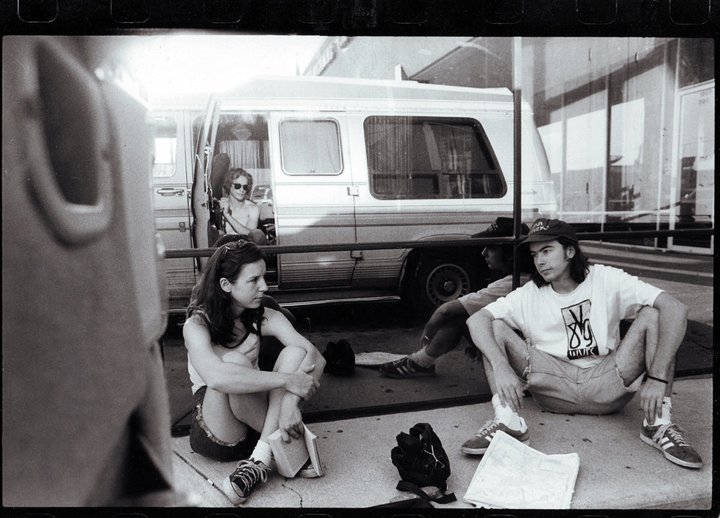
By the time that we recorded the album, we had been a band for a decade. It was the ship that sailed me into a community of creativity. It was the vehicle that gave me a pathway towards becoming an artist; providing me an outlet to make photos, films, t-shirts, posters, and other manners of expression. It had not been easy, though. While we were a part of a creative community, we struggled to break even financially on our tours. On one full-country tour, I think we only stayed in motels two or three nights.
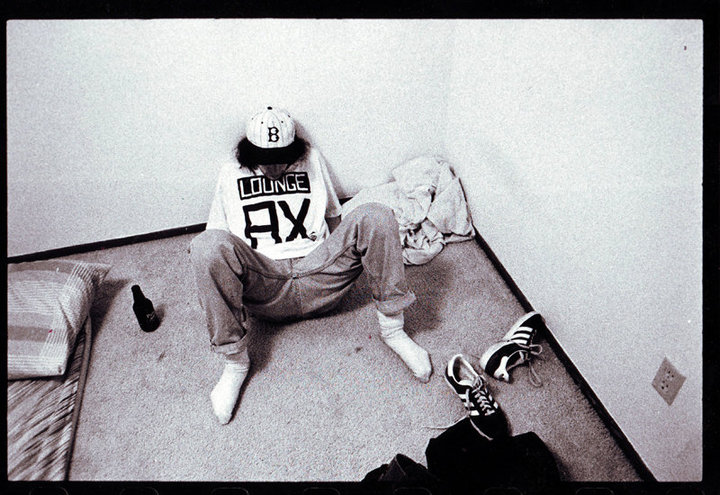
The rest of the time we had to sleep in the van or ask the first person who bought a record or a t-shirt if they had room on their floor. After a decade of labor, it had become increasingly difficult to pour so much effort into a project that cost so much to maintain, both emotionally and financially.
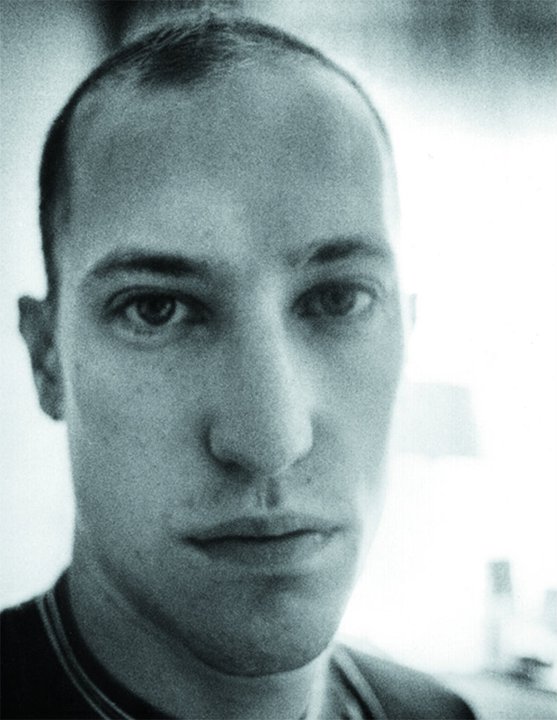
About two years earlier, I had lost my mind on a short tour of the Midwest. This is not an exaggeration, I had lost some touch with reality, and recovering from that involved re-assessing my place in the world. My relationship with the band was only part of the problem at that point. In large part, the breakdown had more to do with my relationship with my girlfriend, and frankly even more to do with my relationship with myself. I needed some distance from all of these relationships. So, when I was given the opportunity to tour with another band, and actually get paid for it, I jumped in. While this gave me distance from my band, and from my girlfriend, I probably should have used that distance to come to a better understanding of myself. Rather than making space to fully access my own role in the problems that plagued those situations, I decided to jump into a new one.
Getting hired for that tour led to the start of a side project with one of the members of the new band. New relationships are often exciting because they don’t seem to be as mired in the patterns of older ones. However, if we dive forward without some self-examination, we tend to fall back into the patterns we think we are escaping from. Rather than solving the problems that I had in former relationships, the new relationship involved a new set of problems. Increasingly, the demands that it created put pressure on both my relationship with my band and my girlfriend.
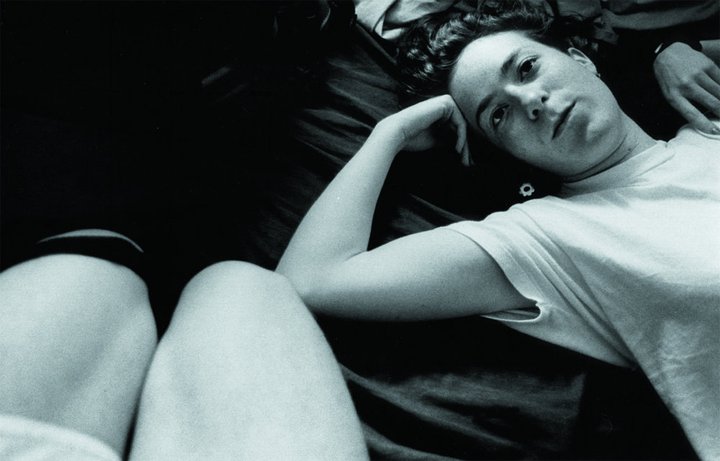
By the time we were recording “The Brighter Shore,” I was also needed for a trip to England with the other band. In some sense, I had to make a choice because the other band was starting to have some success – a manager, real interest from labels with money – and those immediate needs required more of a commitment. However, while it was an impetus for me to leave Sleepyhead, the new project was not the reason that I chose to end the relationship. For some time, I knew that I needed something to change. In order to remain in the relationship I had had to bury a part of myself, and that weighed on me in ways that I didn’t fully understand. One of the reasons I had gravitated towards the new project was that I felt my ideas had been pushed to the side in Sleepyhead. The other two members were in a relationship, and it can be very hard to be the creative third wheel. Still, our last album, which very few people heard, has some of our most powerful and most collaborative work. In the end, we had become a very good band. Yet, as we labored forward, our audience had moved on. I was burnt out. A few months later, the new band was offered a big contract, but my partner decided to take the money and run. It was devastating, and that chapter of my life closed.
In addition to our films gaining some renewed attention, our second and third albums will be re-released as a limited box set this spring. We were a somewhat obscure band, whose albums came out on small labels that didn’t have any resources. We never made videos, and our songs are not on streaming services. As such, we don’t fully exist in the age of the internet. Hopefully, this re-release will spark some interest in “The Brighter Shore”, because while it was our last gasp as a unit (Chris and Rachel continue to play and released an album last year), it was our strongest, most mature work- and I hope that people might re-discover it. Here’s another song from that album.
Box for Blue- Sleepyhead from “The Brighter Shore” from rumur on Vimeo.

No Comments